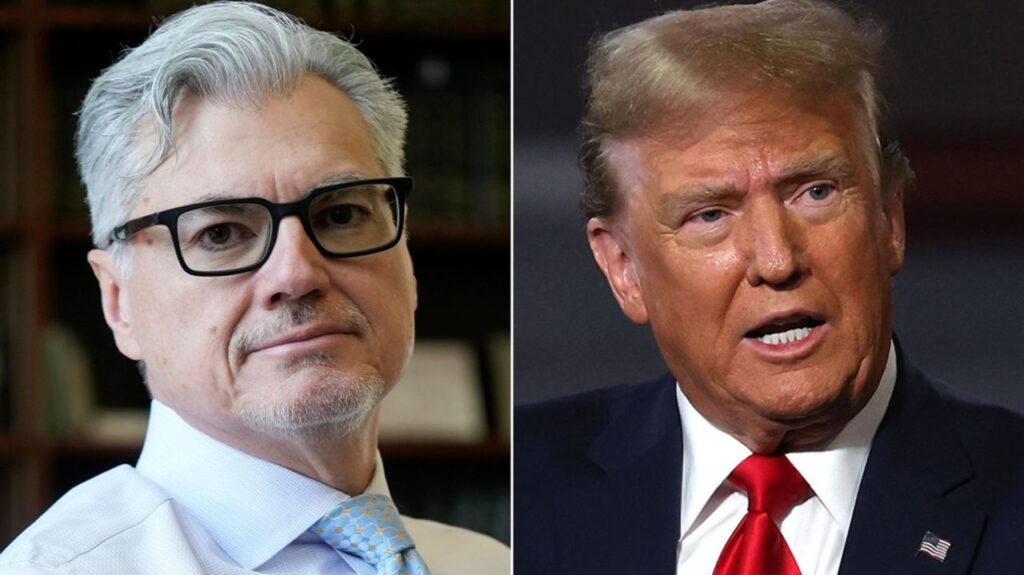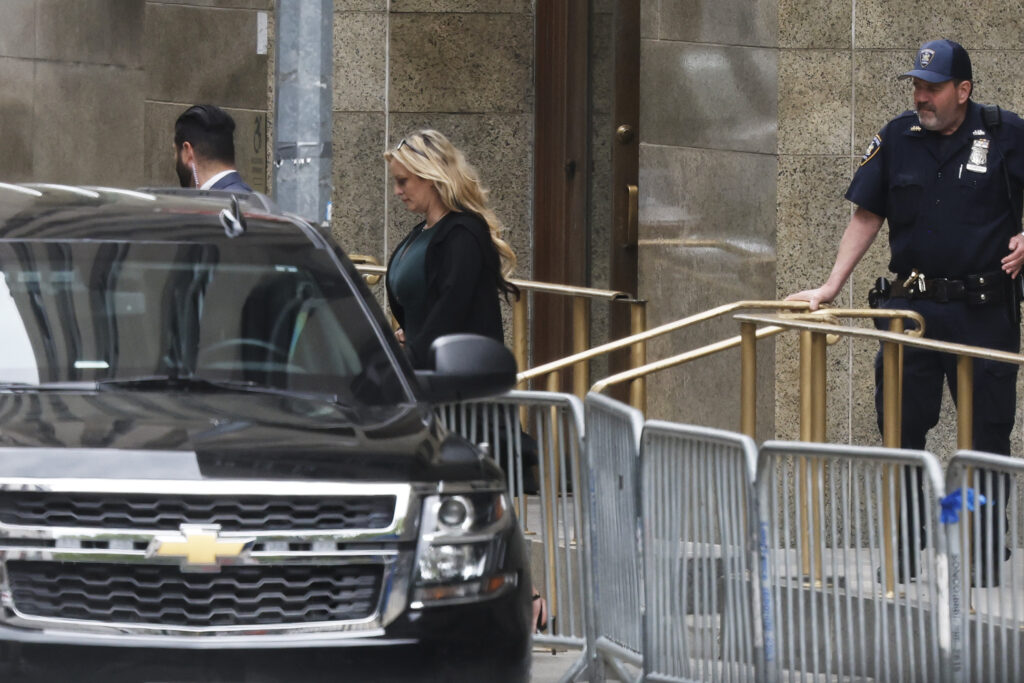Appeals Court Denies Trump’s Last-Ditch Bid to Delay Sentencing in Hush-Money Case
The judge presiding over the case, Juan Merchan, has set sentencing for Friday, just ten days before the inauguration.

A New York appeals court justice has denied President Trump’s last-minute effort to block his upcoming sentencing in the Stormy Daniels hush-money case, which the trial judge has scheduled for this Friday.
“After consideration of the papers submitted and the extensive oral argument, movant’s application for an interim stay is denied,” said the court order, signed by an associate justice, Ellen Gesmer.
Trump is now expected to ask a full panel of the court, the Appellate Division First Department — a mid-level New York state appeals court — to stop the sentencing.
Justice Gesmer’s ruling comes on the same day that Trump’s defense attorneys filed an emergency request to halt the sentencing.
“Justice Merchan is without authority under the law to proceed to sentencing while President Trump exercises his federal constitutional right to challenge these rulings,” the defense attorneys, Todd Blanche and Emil Bove, wrote in their court filing. Messrs. Blanche and Bove have both been named by Trump to top positions at the Justice Department.
Last week, the lower court judge, Juan Merchan, denied Trump’s request to throw out the criminal case, brought against him by the Manhattan district attorney, Alvin Bragg, based on the argument of presidential immunity.

Judge Merchan signaled that he would release the president-elect on what is known as an unconditional discharge, essentially a sentence of nothing– no jail, no probation, no fines, no obligation or conditions attached. However, the judgment of guilt would remain on Trump’s record and he would formally become a convicted felon, and the first president in U.S. history to assume the presidency as a convict, a victory for Mr. Bragg. Trump appears intent on avoiding the shame of this appellation, coming just days before he is inaugurated.
In their court filing, the defense argued to the appeals court that a sitting president’s immunity from prosecution extends to the transition period between winning the election and being inaugurated as president, and asked the court to block the sentencing until the court has reviewed their arguments to dismiss the case. As Trump fights Mr. Bragg in New York and Jack Smith in Washington and Florida, he has been active as a president-elect, holding press conferences, selecting members for his new cabinet, and taking a commanding role both on Capitol Hill and on the world stage.
In May of last year, a jury found Trump guilty of 34 felony charges of falsification of business records in an alleged scheme to interfere with the 2016 election.
Mr. Bragg had alleged that in 2016, with Election Day nearing, Trump’s then-personal attorney, Michael Cohen, made a $130,000 hush-money payment to the adult film star Stormy Daniels, whose real name is Stephanie Clifford, to buy her silence about her claim that she had a single sexual encounter with Trump at a celebrity golf tournament at Lake Tahoe in 2006. Trump was accused of directing Cohen to wire the money to Ms. Clifford and then disguise Trump’s reimbursement to Cohen as a legal fee. Mr. Bragg translated this transaction into multiple felony counts. Trump denies all charges and says he never had sex with Ms. Clifford.

Trump was scheduled to be sentenced on July 11. Yet on July 1, the Supreme Court ruled that presidents are immune from prosecution when fulfilling the duties of their presidencies. Within hours of the landmark decision, Trump’s attorneys asked Judge Merchan to dismiss the hush-money verdict and the indictment, arguing Mr. Bragg used evidence during the trial that stemmed from the time Trump served his first term as president.
The judge postponed the sentencing to September, then to early November, and then to after the election so it would not influence voters. He ultimately ruled against the argument of presidential immunity, writing that Trump’s conduct was related to personal and not to official matters.
When Trump’s attorneys raised the concern that sentencing the president-elect would impede his ability to form his new administration during his transition period and then, once he becomes president, to govern the country, Judge Merchan denied the arguments, writing that overturning a verdict reached by a jury would be an affront to the law.
If the full panel of the appeals court rules against Trump, there are still other appeals avenues he could pursue to try to block Friday’s sentencing.

